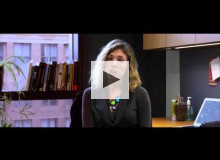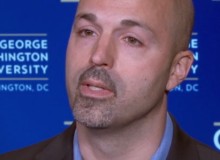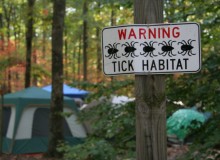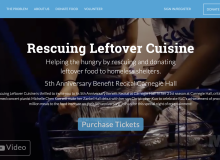Search
Friday, December 17, 2010
When I started working on solar energy issues several years ago, I heard it repeatedly: “Everyone loves solar.” Back then, many people in solar and other cleantech sectors saw long-term meritocracy in the energy business.
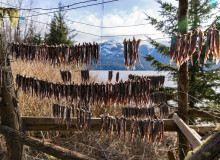
Sun-dried candlefish, also known as hooligan, eulachon, and oolichan. (Brodie Guy/Flickr (CC BY-NC-ND 2.0))
George Washington University
Thursday, June 30, 2022
Today, petroleum is one of Alaska's main exports, but the use of oil in the region goes back thousands of years to the Tlingit people's harvesting of lipid-dense and flammable candlefish. Can this history illuminate a way to a green-fueled future?
Tags: oil, energy, storyfest, Alaska, whaling, Indigenous Knowledge, astonishing alaska
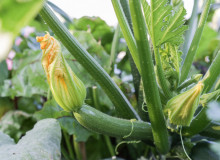
A baby zucchini grows beneath a yellow blossom. (Maja Dumat/Creative Commons)
The George Washington University
Wednesday, July 29, 2020
The pandemic may have forced you into a new relationship with food. But the food that ends up on your plate has always traveled a complicated, exploitative, and convoluted path to get there.
Tags: GroW Garden, food system, food desert, environmental justice, covid-19, black farmers, farming, public health
MPH@GW, The George Washington University
Monday, March 27, 2017
Adaptation and preparedness for extreme weather and other adverse events related to climate change are more important now than ever — but are U.S. cities ready?
Tags: Urban Sustainability, urban living, climate change
Planet Forward
Tuesday, September 13, 2011
As others have
George Washington University
Monday, March 17, 2014
Amit Ronen of the GW Solar Institute talks about what it will take to make solar a viable option at scale, technologically and economically.
Tags: Solar Panels, photovoltaic, tax credits, photovoltaic panels, concentrated solar power
The George Washington Universtiy
Monday, December 15, 2014
Climate change can mean more insects that carry disease - can we adapt for our health and our future?
Tags: vector-borne disease, lyme disease, northeast, climate, climate change, Adaptation, climate adaptation, family, health
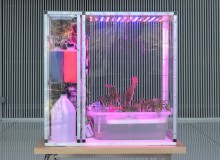
Personal Food Computer (PFC) v2.0 alpha (2016). (Photo courtesy of Open Agriculture Initiative, MIT Media Lab)
SUNY ESF
Thursday, February 09, 2017
MIT’s Open Agriculture Initiative is drawing on the very societal changes that have distanced average citizens from traditional agriculture to close the gap in knowledge and control what we eat.
Tags: urban agriculture, sustainable agriculture, Efficient Food Production, food, food transport, storyfest2017
George Washington University
Friday, August 17, 2018
Rescuing Leftover Cuisine is a New York-based nonprofit founded by Robert Lee, who was selected for the 2016 Forbes 30 under 30 for social entrepreneurship.
Tags: Food Waste, food recovery, carbon dioxide, CO2, Carbon emissions, nonprofit, storyfest2019
The Energy Resilience and Conservation Investment Program solar microgrid project at Fort Hunter Liggett in California is managed by the Sacramento District. (John Prettyman/U.S. Army Corps of Engineers)
George Washington University
Monday, May 20, 2019
A closer look at Lilker EMO Energy Solutions LLC, a sustainable energy consulting firm in Falls Church, Virginia, that is helping lead America's energy transformation.

